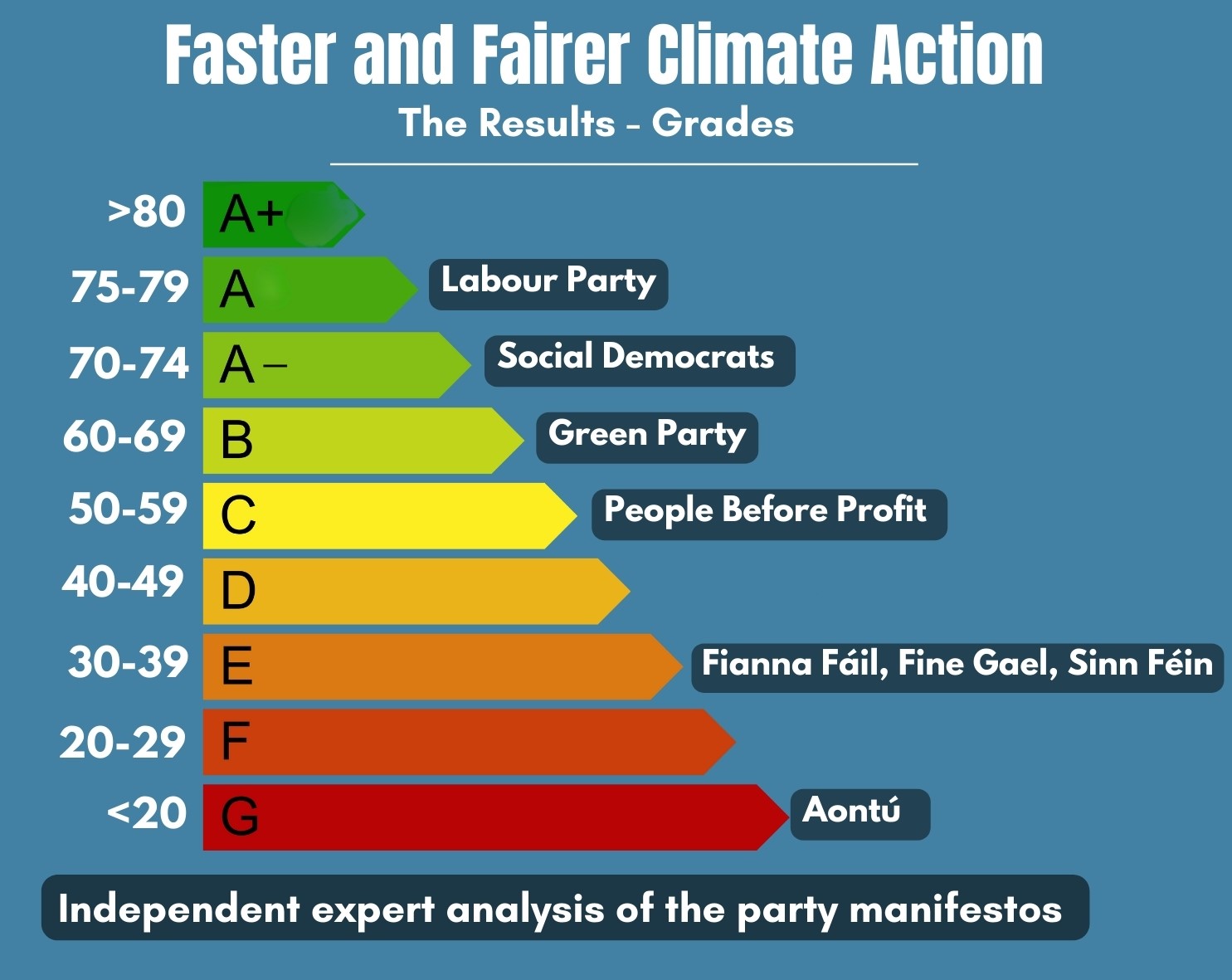How do party manifestos signal the possible shape of climate action in the next government?
Read the independent assessment of the climate action pledges commissioned by Friends of the Earth

After spending much of the past week going through more than 1,000 pages of 9 political party manifestos, there are three distinct approaches to climate among the parties. The political parties that scored highest - Labour, Social Democrats, the Green Party and People Before Profit - all demonstrate very strong commitments to climate action. These parties place climate among their top priorities and detail plans to cut emissions quickly, while considering aspects like equity and biodiversity.
Unfortunately, the media coverage of our assessment has mainly fixated on the relative positioning of these top-scoring parties, particularly that the Green Party didn’t come out on top. There is a touch of amusement to a lot of the coverage.
But I think it misses the bigger picture. Our assessment awarded higher scores to parties that show greater detail, place a high priority on climate action, and consider climate policies across multiple policy areas (like health, housing, Irish unity). These parties also show commitment to more transformative measures, like in transport and food systems, tackle thorny issues, and who set out explicit measures to cut fossil fuel use.
But of the four top-scoring parties, their success in delivering on these promises depends on their position in Programme for Government negotiations and on their ability to implement while in government. While our scorecard assesses manifesto promises - which is critical - it cannot capture the whole picture. It is up for voters to decide who they believe can follow through,
My biggest takeaway from our assessment is that the three main parties - Fianna Fail, Sinn Fein and Fine Gael - all scored an “E”. Their manifestos fail to show commitment, leadership and bravery on climate issues. On the basis of these manifestos, momentum on decarbonisation and sustainable transitions in energy and food could stagnate, unless one or more of the “top 4” enter coalition and are successful in driving a climate agenda, in the same way the Green Party has done in the outgoing government.
Even more concerning is that is that Aontú and Independent Ireland each scored a “G”, our worst mark. If either of these parties form a coalition, we could see a repeal of the Climate Act, and regression across many areas. Some political commentators are speculating that Independent Ireland in particular could be a plausible coalition partner.
So to those who care about a safe climate - and surveys suggest that is the vast majority of Irish people - here is my plea: When deciding how to vote, consider the four parties that come top in our manifesto assessment - the order within the top four certainly matters less than the gap between those four and the others. I also call on the Irish media to hold the leaders of the three large parties accountable, and press them to re-commit to the Climate Act.